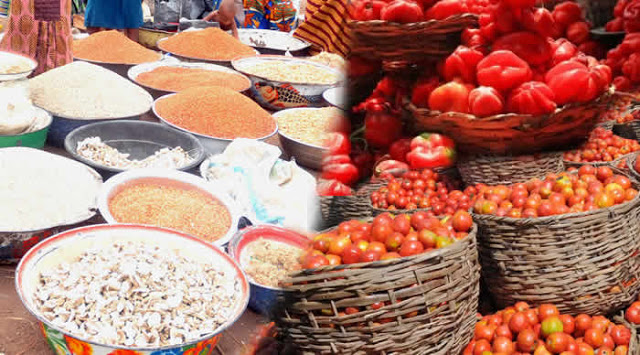The Minister of State for Agriculture and Rural Development, Mr Mustapha Shehuri, says Nigeria’s food system is weak and vulnerable to shock.
Shehuri said on Monday at this year’s Feed Nigeria Summit which was held in Abuja.
Shehuri, who was represented by the Director, Federal Department of Agriculture, Hajia Karima Babangida, said the Summit will assist the Ministry to re-examine the weak link with a view to strengthen it for an Agricultural System that will work for Nigeria and stabilise the Food Security.
“There is no doubt that the current Nigeria Food System is weak and vulnerable to shock.
“The Summit, no doubt will assist the Ministry to re-examine the weak link with a view to strengthen it for an Agricultural System that will work for Nigeria and stabilise the Food Security,” he said.
He said that the Ministry is determined to create a functional food system that will guarantee all citizens, an unrestricted access to good quality nutritious and safe food.
“This underscores the various programmes and interventions that are on-going in the Ministry in areas of agricultural livelihood and supports, Food Safety and provision of Infrastructures in different ecological areas of the country.
He said for a sustainable Food System, the country must rise to overcome challenge of poor quality food supplies, hunger, malnutrition and improper food habit of promoting food wastage.
“This is the acceptable consumption behaviour globally that an average Nigerian especially in the Urban areas pays little or no attention.
“If we devote so much to produce, we should pay more attention to avoid waste because of its economic and environmental impact negatively”, he added.
The Minister of Agriculture and Rural Development, Alhaji Muhammad Nanono said the country may produce enough food to eat but people will still sleep with hunger because they do not have enough money to buy food.
He noted that the problem is as a result of unemployment for people to earn money for food, rent or education, identifying this as a great challenge to the Nation.
“I recently met with some young Nigeria who are into processing and
synergising agriculture with the industry, and that is exactly what we need in this country.
“Unless we create that relationship and make it strong the poverty will persist..
“There is no single seminar on agriculture that i have attended that i do not come across that our value chain is not mentioned, we have done a lot in that regard and we have even gained international recognition.
“If we do not focus on how do we remove this fundamental issue of army unemployed youths and move them to be gainfully employed we are doing nothing, the relationship between the agricultural sector and the industrial sector is a must,” he said.
Nanono said the Federal Government has continued to implement new strategies to aid the development of the agricultural sector and strengthen the value chain.
“The focus of the National Agricultural Transformation and Innovation Plan (NATIP) is to aid a new strategy that will strengthen the agricultural financial system, reduce food imports and help to refocus attention on agriculture as a key driver of the Nigerian economy.
He lamented that Nigeria still imports a significant amount of food and we are not earning as much foreign exchange as we could from agriculture.
The Minister said for this reason it has become pertinent to re-strategize and deploy innovation to tackle the longstanding issues and lead Nigeria towards food sufficiency.
Nanono said this year’s Summit will explore pathways that can help build Nigeria’s Agribusiness ecosystem efficiently, and sustainably.
He said the Ministry is committed to continue to work to support key value chain activities such as input distribution, farm production, processing,
distribution and marketing by providing better coordination and infrastructural support.
The Minister said the government will also continue to deliver interventions that address the challenges in the value chain to the end that the post-COVID 19 agricultural sector is strengthened and positioned for growth.
The Director Agribusiness Enabling Environment, of Feed The Future, Mr James Ebuetse said the theme for this year’s summit “Post-Covid-19: A Repaired Food System, Pathway to a Revived Economy” resonates strongly with events around the world and points out to us the need to focus our energy on strengthening the nation’s agriculture sector in the post-Covid-19 economy.
He said the Feed The Future Nigeria Agribusiness Investment Activity is a five-year USAID funded program, which aims to strengthen the enabling environment for agribusiness finance and investment in Nigeria.
“So far, we have facilitated the review and approval of five agriculture related policies in Nigeria and facilitated 32 consultative processes on agriculture enabling environment policies, some of these will result in the approval of more policies.
Ebuetse said further that the programme has also facilitated over 96 million dollars in agriculture related debt and non-debt financing to over 11,000 micro, small and medium enterprises (MSMEs).
He said the facilitation is focused on value chains of Rice, maize, soybean, cowpea and aquaculture in seven states of Benue, Cross River, Delta, Ebonyi, Kaduna, Kebbi and Niger States”, Ebuetse noted.
Nigeria’s current food system weak, vulnerable
RELATED ARTICLES




